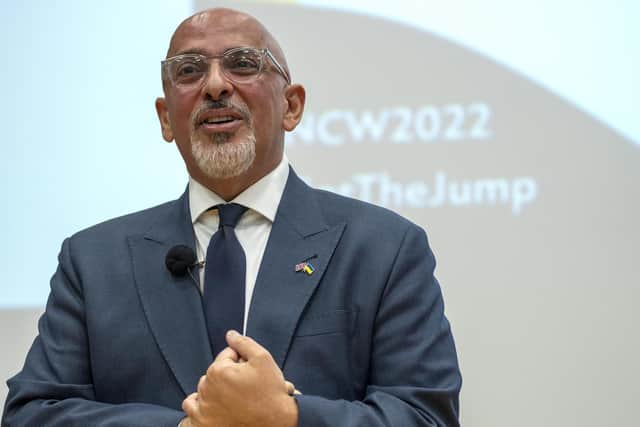Education secretary must address unanswered questions over GCSE exams - Jayne Dowle
I feel so sorry for her. Revision is dull, there’s no getting away from that. It was never my thing; I spent more time staring out of the bedroom window than buckling down to serious work. My pitiful clutch of O-levels remains permanent testimony to such a dilatory approach.
Lizzie, however, is far more organised and focused than I was aged 16. It’s not my daughter’s academic performance I’m particularly concerned about. I take a philosophical attitude to all stages of public examinations. And if something goes terribly wrong, she can always resit.
Advertisement
Hide AdAdvertisement
Hide AdIt’s just that pervasive feeling of doom hanging over the next few months. In some respects, Lizzie’s year group is fortunate. They have been in the classroom full-time since September, unlike the year above them, who had crucial months of schooling disrupted by lockdowns and home-schooling.


In others, however, the class of 2022 already show signs of yet further evidence of potential long-term collateral damage from the pandemic. Nothing has been said, officially, but they’re in fear of grade boundaries being raised.
This would happen entirely beyond their control, however hard they worked, to redress the balance of what have been widely-held to be the more lenient teacher-assessed grades (TAGs) awarded to students in the summer of 2021.
There has been a lot of stress amongst high-achievers who are already thinking ahead to university and wondering if a relatively poor showing on GCSEs might end up becoming a deciding measure when admissions tutors at the top universities are compelled to choose between two equally able candidates. And this is happening against a background of rising Covid cases, which is leading to worrying levels of teacher absence.
Advertisement
Hide AdAdvertisement
Hide AdOnly a fortnight ago, the Times Educational Supplement (TES) reported that schools were being forced to send year groups home and finding it impossible to find adequate supply and cover teachers.
Almost every day, Lizzie comes home with some tale of woe about another teacher who hasn’t turned up due to illness of some kind, and another cover with no experience of the subject at hand. This is less than a month before GCSEs start. And it’s not just her own school. Every secondary school parent I talk to has a similar tale of woe.
The Department for Education is committed to exams going ahead this year, and says that TAGs will be brought in only if exams are cancelled nationwide. The big question, obviously, is what happens if one school, town or region suddenly finds Covid cutting a swathe. On this, no answer has been forthcoming.
No wonder headteachers’ leaders are signalling concern about arrangements and are asking the Secretary of State for Education, Nadhim Zahawi, to “urgently address” unanswered questions.
Advertisement
Hide AdAdvertisement
Hide AdJulie McCulloch, director of policy at the Association of School and College Leaders (ASCL), has highlighted in particular, the “special consideration” rules under which individual students can be awarded grades if they miss a proportion of exams in a subject, for example due to illness.
It is “currently unclear what will happen this year if large numbers of students are unable to take exams in a subject, and whether TAGs could be used instead in that situation”, Ms McCulloch warns.
And this uncertainty is having a hugely-negative effect on students themselves, who after all, are the most important people.
At the ASCL annual conference in March, curriculum lead Tom Middlehurst warned that the union was seeing “more students who have evidenced anxiety and are coming with doctors’ notes and GP notes saying ‘we have anxiety about coming to the exams’”.
Advertisement
Hide AdAdvertisement
Hide AdYet still Mr Zahawi seems mute. My theory is that, considering the absolutely disastrous performance of his predecessor, Gavin Williamson, given a knighthood by Boris Johnson for wrecking the mental health of thousands of young people with his shambolic handling of examinations, he’s too afraid to open his mouth.
This, however, is not good enough for a senior minister of state. School leaders, teachers, parents and students want answers.
If a detailed fall-back plan of action isn’t formulated and communicated soon, it’s not just Lizzie and her peers who will end up cramming desperately the night before. Mr Zahawi might also find himself burning the midnight oil.
